The U.S Helsinki Commission held a hearing on Wednesday on “Democracy and Human Rights Abuses in Russia: No End in Sight.” It was the first hearing in the 115th Congress focused on internal human rights repression in Russia.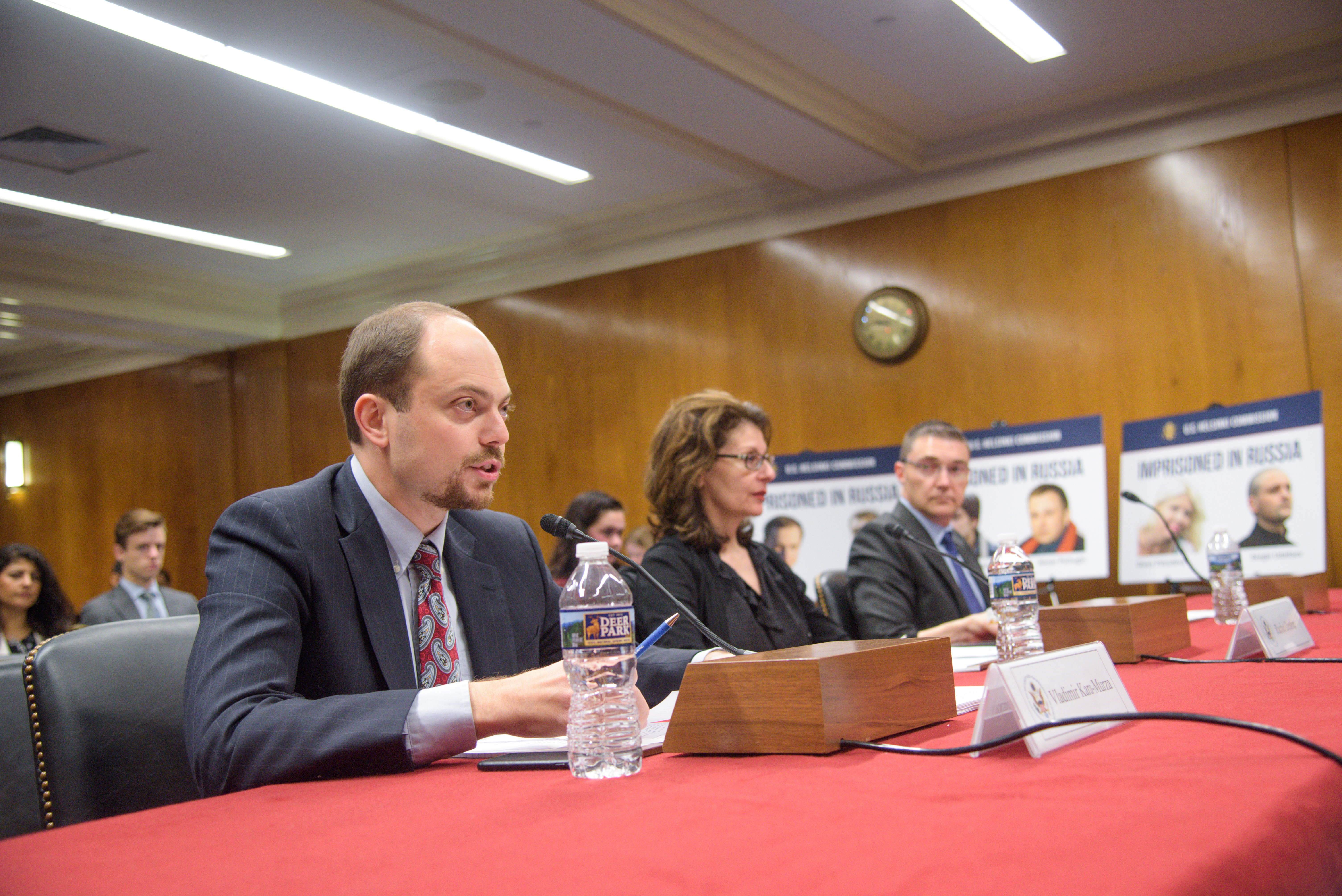
Vladimir Kara-Murza, vice-chairman of pro-reform movement Open Russia; Rachel Denber, Deputy Director of the Europe and Central Asia Division at Human Rights Watch; and Dr. Daniel Calingaert, Executive Vice President of Freedom House, testified about the crisis of Russian democracy and the country’s worsening human rights record under President Vladimir Putin.
In his opening statement, Mr. Kara-Murza underscored the necessity for the OSCE participating States to give an honest assessment 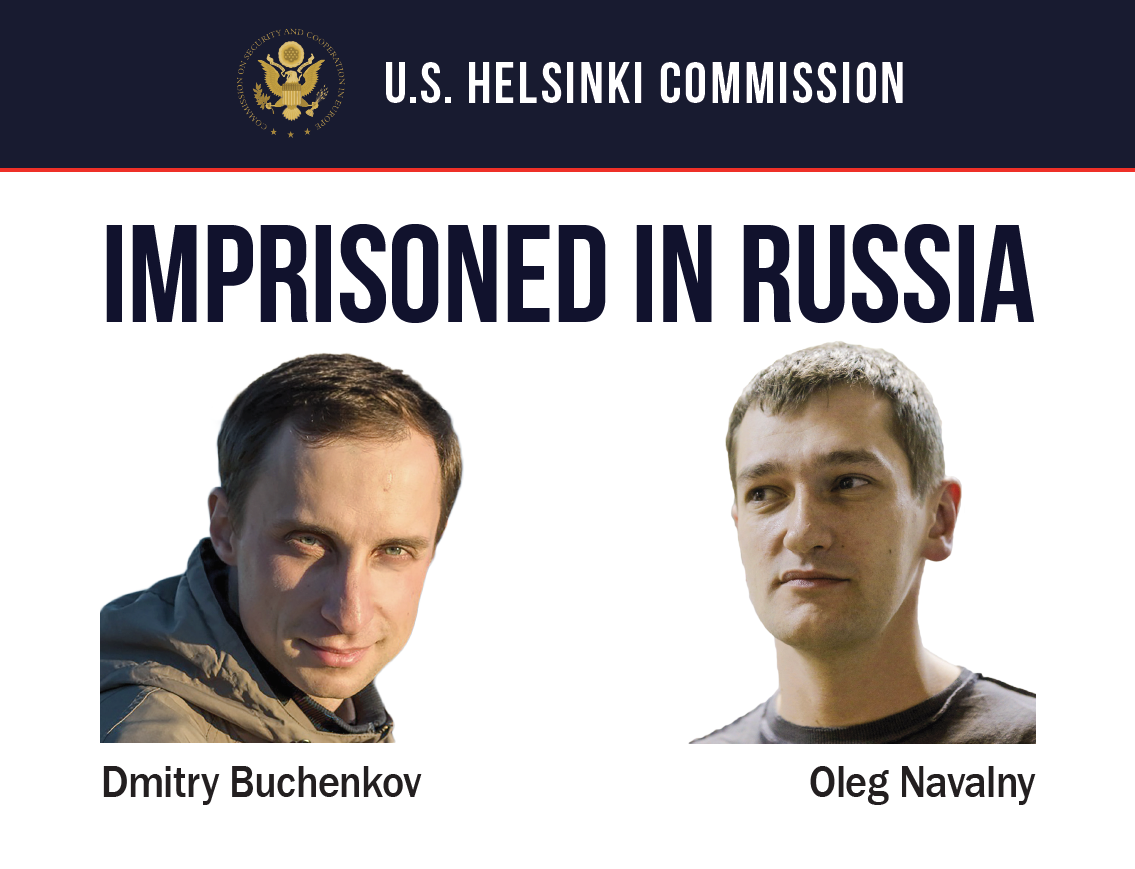 about what is happening in Russia, where the number of political prisoners now exceeds a hundred people (a number that has doubled in less than a year).
about what is happening in Russia, where the number of political prisoners now exceeds a hundred people (a number that has doubled in less than a year).
Mr. Kara-Murza, a vocal critic of the Kremlin who has survived two poisoning attempts, estimated that more than 30 activists have been murdered by the Putin regime since Vladimir Putin assumed power in 2000. He also called for an end to impunity for human rights violations in Russia.
“The U.S. does have a mechanism for such accountability in the 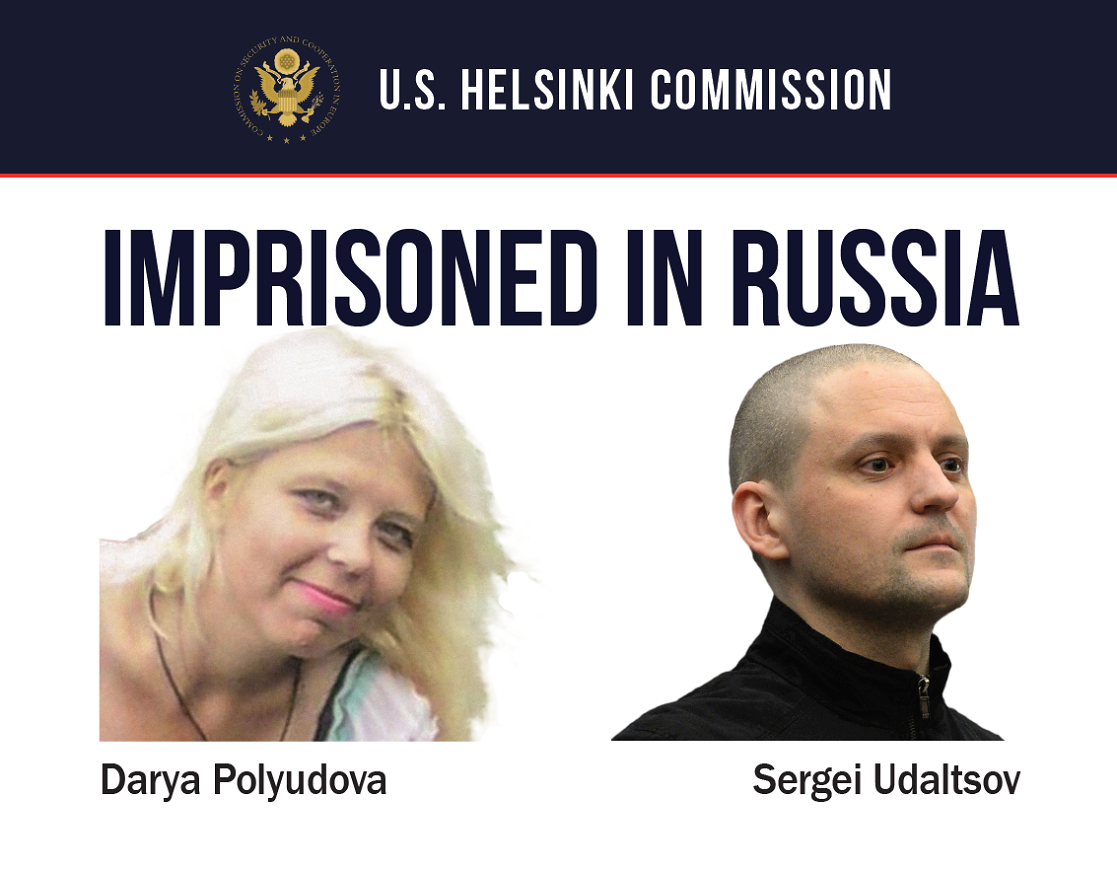 Magnitsky Act that provides for targeted sanctions on human rights abusers. This law should continue to be implemented to its full extent,” Mr. Kara-Murza said.
Magnitsky Act that provides for targeted sanctions on human rights abusers. This law should continue to be implemented to its full extent,” Mr. Kara-Murza said.
His concerns were echoed by Human Rights Watch’s Rachel Denber, who noted that today, “Russia is more repressive that it has ever been in the post-Soviet era.” At Chairman Wicker’s request, Ms. Denber provided detailed information about each of the Russian political prisoners who were featured on posters in the room, and also spoke at length about the repression of gay men in Chechnya.
Dr. Daniel Calingaert of Freedom House highlighted the fact that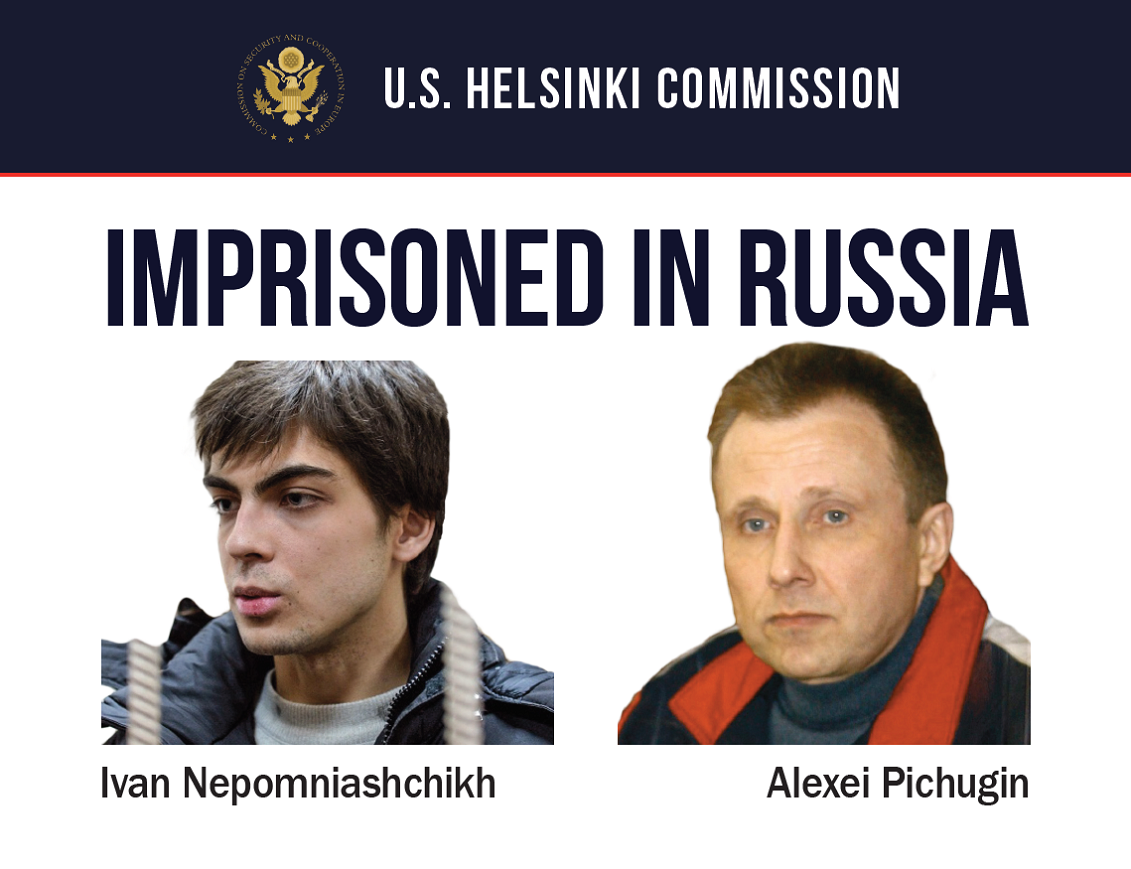 Mr. Putin was the primary author of the modern authoritarian’s playbook, which has subsequently been replicated by many autocratic rulers in the region.
Mr. Putin was the primary author of the modern authoritarian’s playbook, which has subsequently been replicated by many autocratic rulers in the region.
“His methods for suppressing civil society and political opposition have inspired other dictators, and his media manipulation has impacted most of Eurasia directly and extended to Europe and the United States,” Dr. Calingaert said.
However, despite the grim situation, Mr. Kara-Murza voiced some optimism about the future. “Increasingly, the young generation in 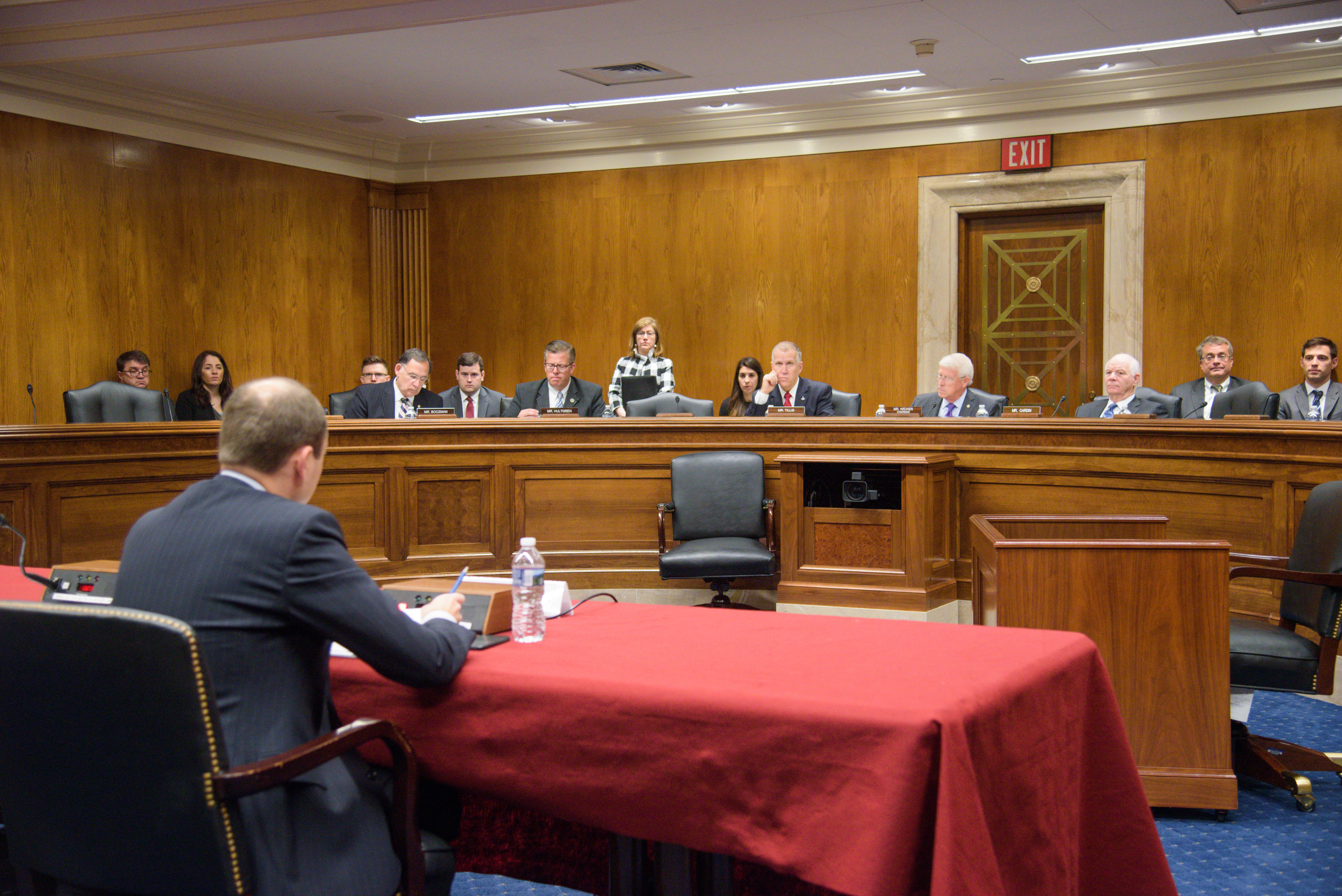 Russia – the very generation that grew up under Vladimir Putin – is demanding respect and accountability from those in power,” he said.
Russia – the very generation that grew up under Vladimir Putin – is demanding respect and accountability from those in power,” he said.
Mr. Kara-Murza pointed to a wave of anti-corruption demonstrations that took place in dozens of cities across Russia in late March, with tens of thousands of people, mostly young protesters, taking out to the streets to demand the resignation of Prime Minister Dimitriy Medvedev.
“This movement will continue. And these growing demands for accountability are the best guarantee that Russia will one day become a country where citizens can exercise the rights and freedoms to which they are entitled,” he added.










